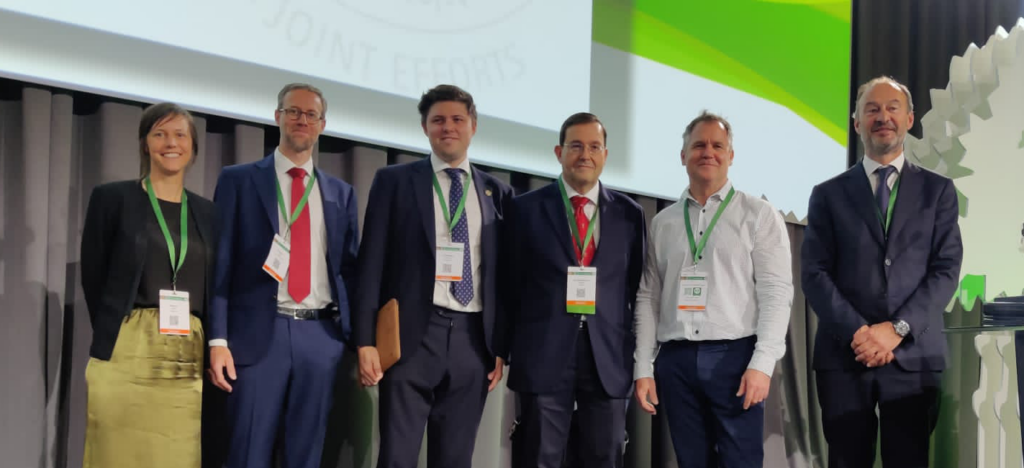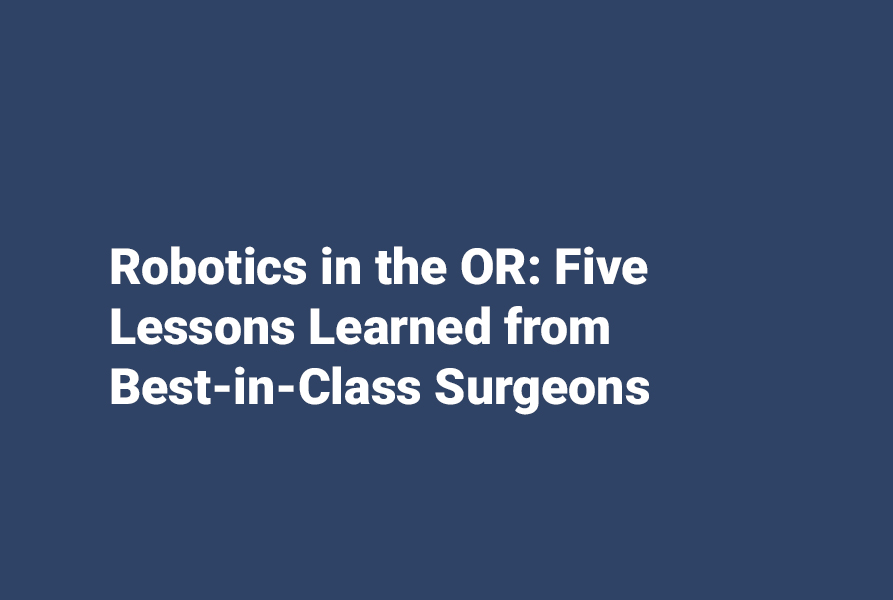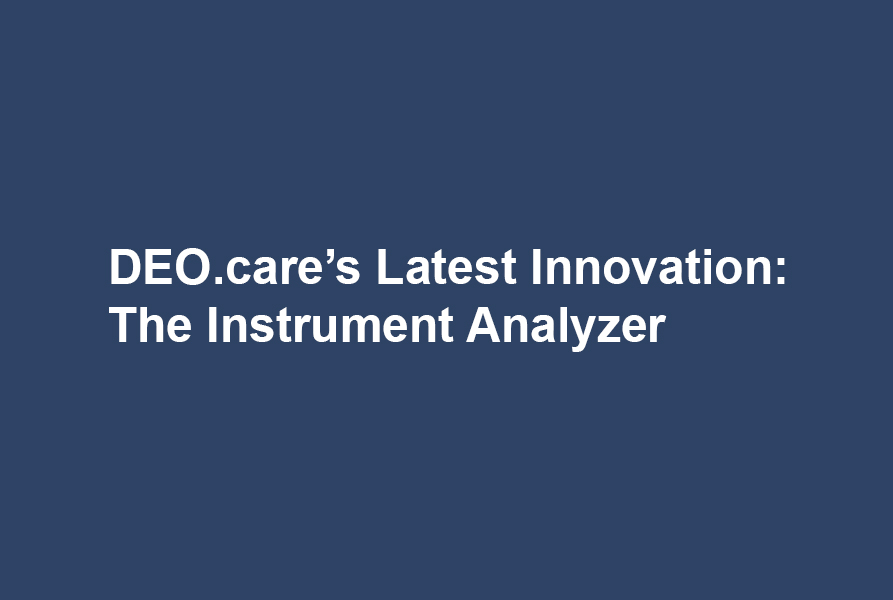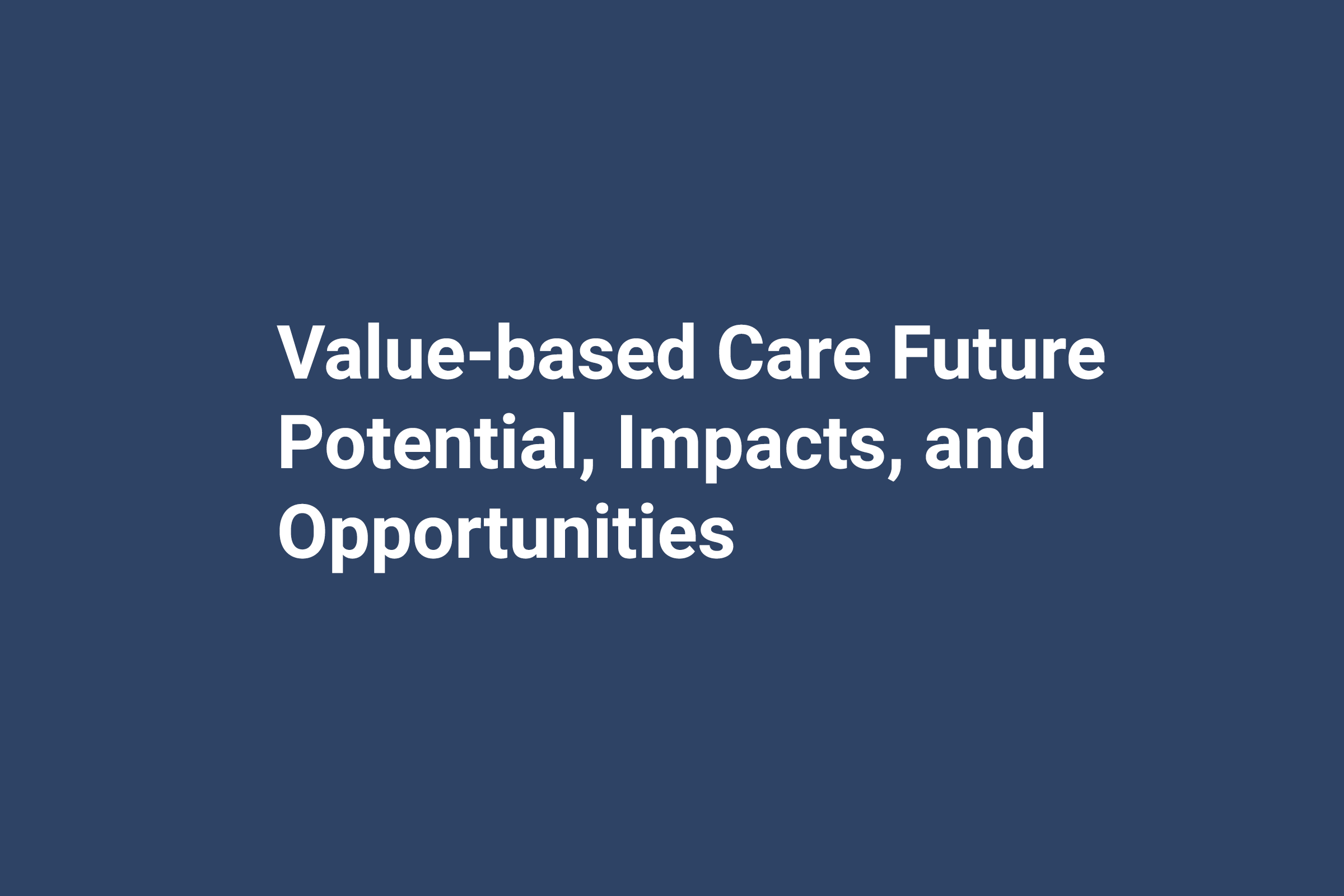Panel discusses achieving operational excellence with data
The DEO.care team had the honor of joining the EFORT conference on May 26, 2023 for a symposium about operational excellence. A global audience of 3,000 surgeons and healthcare experts from around the world convened in the center of beautiful Vienna to share their expertise in orthopaedic surgery. Our Director of Partnerships Nele Daemen presented alongside Professor Enrique Gomez-Barrena, Dr. Nanne Kort, MD, PhD, Dr. Michel Bonnin, Dr. Jeroen Verhaegen and Dr. Bert Boonen to discuss recent developments in operational excellence in the orthopedic setting.

Operational Excellence: A bird’s eye view
This symposium brought together professionals with a variety of expertises and backgrounds to inform a holistic approach to operational excellence. A successful OR requires an optimal patient experience, team wellbeing, process efficiency, and financial performance, also known as the quadruple aim. The quadruple aim has become increasingly important in today’s discussions around sustainable healthcare systems as the industry recognizes one area cannot be achieved without the others. These discussions brought to light a few different areas where the healthcare industry can create a more holistic approach to operational excellence.
The relationship between people and process
One of the key takeaways was the symbiotic relationship between people and process. Creating effective processes results in a happier and healthier team, but a good process is only as good as the people implementing it.
Moderator Dr. Nanne Kort shared his revolutionary approach to setting up Europe’s first focus clinic with true dedication and focus like a F1 team. Dr. Kort is an esteemed hip and knee surgeon in the Netherlands, working to create an optimal patient experience in treating hip and knee osteoarthritis. Dr. Kort likes to think outside the box, and when he set up CortoClinics this was no exception. CortoClinics is the first orthopedic clinic in Europe dedicated exclusively to hip and knee replacement surgery, harnessing the latest advancements in technology to achieve a high OR throughput combined with excellent patient experience and quality of care. Dr. Kort attributed this success to putting the happiness of his patients first and foremost. His people-centric approach has resulted in highly satisfied patients and a happy team that effectively implements the best processes, resulting in a highly profitable clinic. For far too long, the value of team wellbeing and culture has been viewed as an abstract concept that is too difficult to measure, but with the proper data, healthcare professionals can measure the impact of culture and a happy team and understand the direct financial impact of efforts to improve these areas.
Nele Daemen shared lessons learned from DEO.care’s years-long experience of implementing operational excellence across Europe and the United States. Based on this experience, DEO.care found there are two factors that are critical to success when implementing operational excellence: data and team. In analyzing hospital data from Europe to the U.S., DEO.care has found that no matter the location, all hospitals share the same struggles: finding and retaining good staff, managing increasing patient demand, and mitigating high costs. In order to address these problems, DEO.care developed an AI-driven data and insights platform to gather comprehensive data on process efficiency, team allocation, material usage, ergonomics, and financials. Oftentimes, surgeons recognize areas where tasks are not being executed in the most optimal way, but without the proper data it’s difficult to quantify those feelings and pinpoint where the struggles are coming from. Quality data on the different aspects of operational excellence bring to light the key components to align stakeholders on necessary changes.
And while data is crucial to provide objective insights, in the end a successful change trajectory will only be achieved by a full team-led initiative. Often, team members have a shared vision for the end goal of success, but differ in beliefs on how that vision will be best achieved. Having a clear process in mind that everyone can agree on is essential to aligning expectations and responsibilities in moving improvements forward. By creating virtual simulations of improvement scenarios that replicate the environment of each unique operating room and staff (also known as process digital twins), DEO.care is able to simulate changes in an OR based on its database of best practices. In this way, healthcare professionals can use data to make the abstract actionable and create a plan with measurable outcomes and benefits that paints a clear path to align actions with the shared end vision of all the stakeholders in the OR team.
Value-based healthcare
Dr. Michel Bonnin broke this down even further with his talk, Custom Versus Conventional Knee Prosthesis: What Is The Impact On Operational Excellence? Dr. Bonnin shared his experiences from Lyon, France, where he conducted a study in partnership with DEO.care on operational excellence for custom knee replacement as opposed to conventional knee replacement. This study was the first to take a holistic value-based healthcare approach to gather data and understand the impact of using specific technology on not just patient outcomes but also understand how the technology impacted the OR team well-being and operational efficiency. By including operational aspects in the data collected for his study, he was able to create a broader picture that also took into account the wellbeing of the staff executing those surgeries.
Building a better business case
Not only does the proper data allow you to gather insights in current practices, it allows you to make a better proposal for change. Dr. Jeroen Verhaegen shared his experiences in Data Driven Decision Making Case Study: Simultaneous bilateral THA vs staged unilateral procedures. Dr. Verhaegen is a hip surgeon who is continually looking for ways to use the latest technology to improve his operating room. He observed that many surgeons like him were finding new ways to improve their experience, but struggled to convince the broader team of the value of implementing change without data. Larger hospital systems move slowly, and convincing managers of the value of implementing a potentially costly change can be a daunting task for a surgeon who is already burdened with day to day operations. Working alongside his mentor Professor Corten, they partnered with DEO.care and were able to easily gather the necessary data to create a compelling business case that aligned stakeholders to see the full picture and support the change in implementing simultaneous bilateral hip surgery.
The value of data extends beyond changes in process to include supporting financial investments in new technology like surgical robots. Dr. Bert Boonen shared his insights on Implementing Robotic Knee Surgery With Operational Excellence and emphasized the importance of data to guide the implementation of robotic technology. Operational excellence is a process of building a culture that supports continual improvement in the quality of everyday care and techniques by staff in the OR. In order to optimize your use of robotic devices, he advised, you have to consider all the components and stakeholders to foster autonomy and build a team culture that will support and sustain this change. Dr. Boonen emphasized the importance of gathering data on not just how the surgical procedures will change with robotic equipment, but also the OR environment, culture, and impact on the team in the setup and breakdown and flip between patients. While robotic equipment can be highly beneficial to an OR, your plan must have alignment with the team, and you need external facilitators to ensure that everyone’s needs are taken into account. And when the culture embraces a mindset of continually striving to deliver the best healthcare, they will continually encourage each other to ask questions, identify root causes, and review solutions to push towards achieving the next level of operational excellence.
Data: the way of the future
At the end of the session, participants walked away from the symposium with a new understanding of how data can help create an operating room environment that supports operational excellence. As surgeons continue to recognize the importance of OR team wellbeing and efficiency and the direct link to costs and financial health, including operational excellence data will become essential to assess and validate the impact of both current and new surgical technologies and treatments to create a value-driven healthcare climate that is built to last.
We were honored to be a part of this insightful symposium and look forward to hearing about the ways surgeons continue to implement these new learnings in their future work. If you would like to learn about how our data and insights platform can help you gather the necessary data for your operating room, contact us for a free consultation. We look forward to working with you to create change.
Do you want to know how we can help you get started? Schedule a 15-minute intro call. No strings attached.






